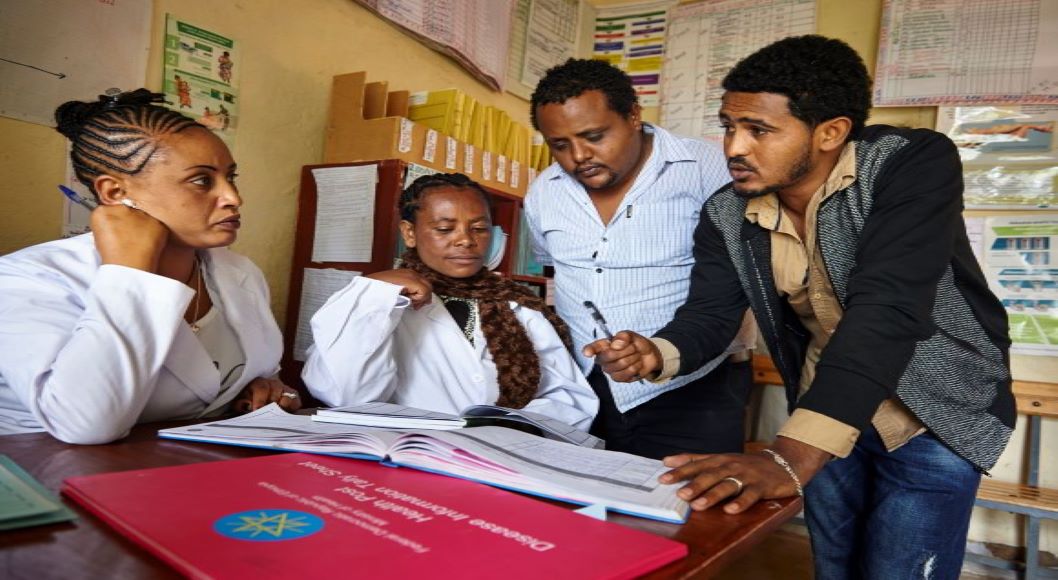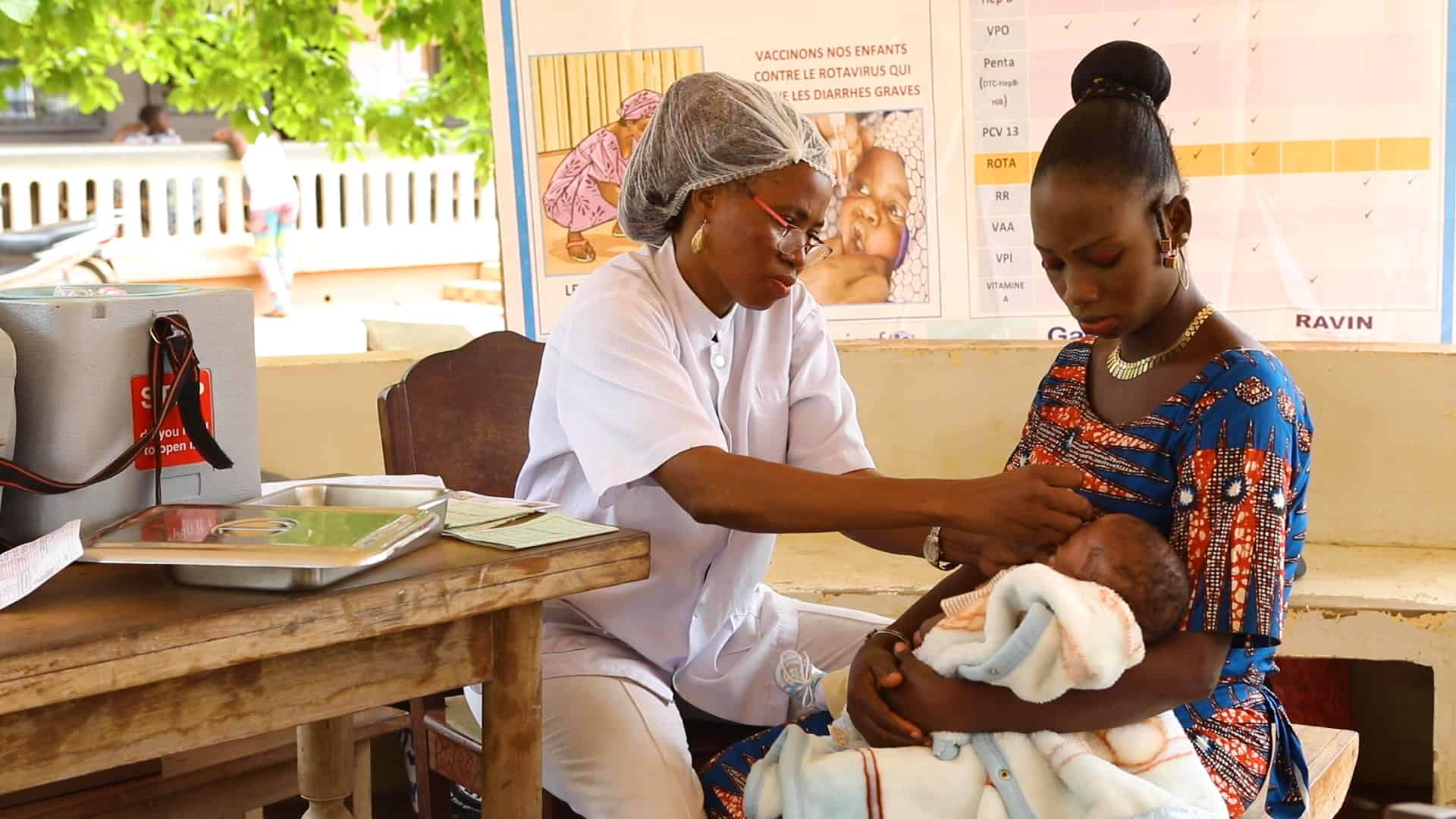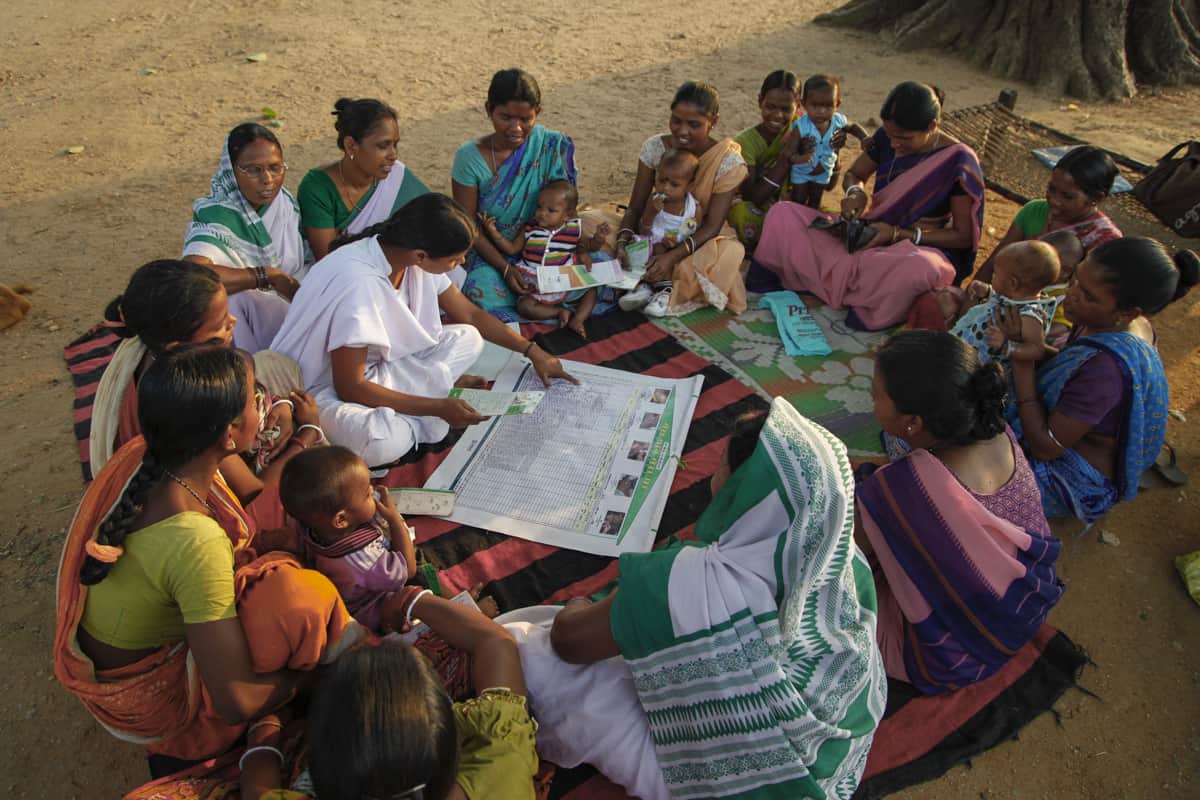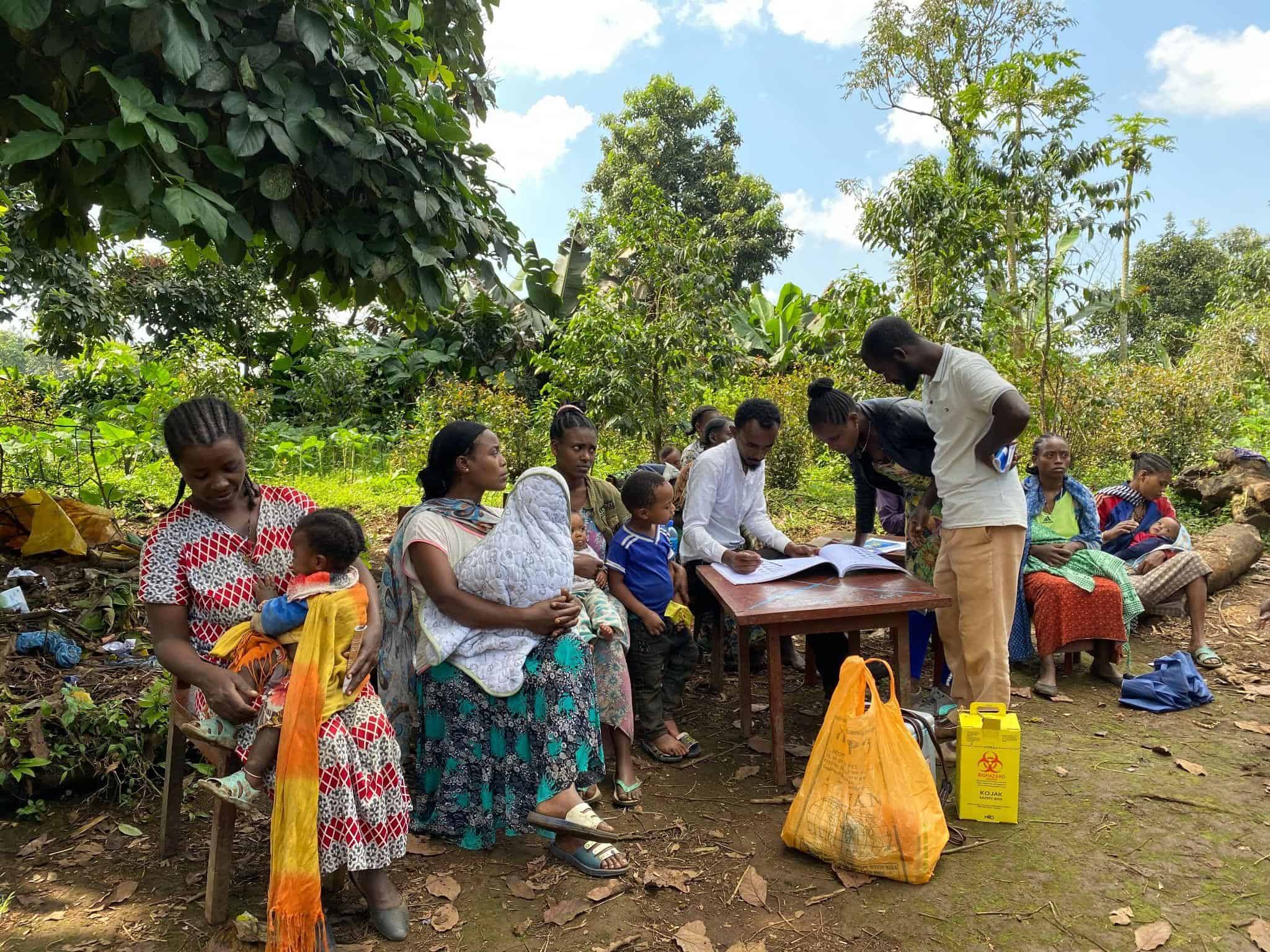JSI’s Universal Immunization through Improving Family Health Services (UI-FHS) project works to improve Ethiopia’s routine immunization (RI) system. The project provides support to operationalize and strengthen Ethiopia’s national RI strategy, Reaching Every District (RED), to improve the country’s availability, utilization, quality, and sustainability of immunization services.
In 2011, JSI was awarded a learning grant from the Bill & Melinda Gates Foundation to develop an approach to bolster RI using quality improvement (QI) tools in three woredas (districts). The RED-QI approach supports five essential components of RED: planning and management of resources, reaching all eligible populations, engaging with the community, providing supportive supervision, and monitoring and using data for action. To strengthen the implementation of the five RED components sustainably, the RED-QI approach uses QI tools to help health personnel identify problems in immunization services, build health staff capacity, and create local solutions.
Utilizing findings from the three woredas, UI-FHS expanded its work from 2014-2018 to over 100 woredas in six regions of Ethiopia — Afar, Benishangul-Gumuz, Gambella, Southern Nations, Nationalities and Peoples' Region (SNNPR), Somali, and Tigray. With a special focus on equity and quality, UI-FHS concentrated its technical support to Afar, Benishangul-Gumuz, Gambella, SNNPR, and Somali from 2018 to 2021. These regions are home to some of Ethiopia’s most vulnerable populations, and the circumstances in these locations present serious challenges to the reach and performance of health services, including immunization.
UI-FHS has been implemented in three phases. UI-FHS I consists of 2 parts: 1) initially developing the RED-QI approach and learning by implementing in three learning woredas, and 2) scaling up this implementation to 103 woredas across six regional states. The third phase, UI-FHS II, focused on securing the long-term success of the RED-QI approach through regional capacity building in four DRS (Afar, Benishangul-Gumuz (BG), Gambella, and Somali) and the SNNPR. UI-FHS also implemented the RED-QI approach in select woredas and zones to facilitate and promote the capacity-building effort and knowledge sharing among regional and zonal experts. The achievements made at the woreda and primary health care levels have largely been institutionalized through Regional Health Bureaus, where lessons learned and best practices are encouraged to expand and be applied to other health interventions.
UI-FHS II focused on five priority areas:
- Improving the equity of RI services to reach the most vulnerable and underserved populations.
- Exploring practical steps for integrating RI management and service delivery with other MCH and family health interventions to strengthen the primary health care system.
- Building RHB capacity so that it is capable of strong management of RI and other services.
- Strengthening partnerships with the MOH and other immunization and development partners to promote uptake, expand implementation, institutionalize best practices and tools, and secure support over the long term for work initiated through UI-FHS.
- Sustaining the systems strengthening approach central to the RED-QI, which aims to work within the existing health system and not duplicate or design complementary services. This is done through partnerships with the MOH, RHBs, Zonal Health Departments (ZHDs), Woreda Health Offices (WoHOs), and other institutions.
Based on project planning, the implementation phase of UI-FHS is coming to an end. UI-FHS completed regional-level implementation during September 2021 and concluded national-level implementation in November 2021.





